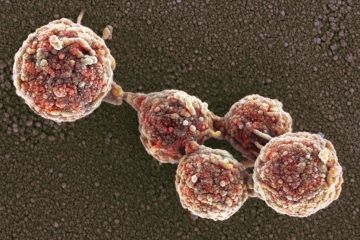Carl Zimmer in The New York Times:’
 Scientists have created a living organism whose DNA is entirely human-made — perhaps a new form of life, experts said, and a milestone in the field of synthetic biology. Researchers at the Medical Research Council Laboratory of Molecular Biology in Britain reported on Wednesday that they had rewritten the DNA of the bacteria Escherichia coli, fashioning a synthetic genome four times larger and far more complex than any previously created. The bacteria are alive, though unusually shaped and reproducing slowly. But their cells operate according to a new set of biological rules, producing familiar proteins with a reconstructed genetic code. The achievement one day may lead to organisms that produce novel medicines or other valuable molecules, as living factories. These synthetic bacteria also may offer clues as to how the genetic code arose in the early history of life.
Scientists have created a living organism whose DNA is entirely human-made — perhaps a new form of life, experts said, and a milestone in the field of synthetic biology. Researchers at the Medical Research Council Laboratory of Molecular Biology in Britain reported on Wednesday that they had rewritten the DNA of the bacteria Escherichia coli, fashioning a synthetic genome four times larger and far more complex than any previously created. The bacteria are alive, though unusually shaped and reproducing slowly. But their cells operate according to a new set of biological rules, producing familiar proteins with a reconstructed genetic code. The achievement one day may lead to organisms that produce novel medicines or other valuable molecules, as living factories. These synthetic bacteria also may offer clues as to how the genetic code arose in the early history of life.
Each gene in a living genome is detailed in an alphabet of four bases, molecules called adenine, thymine, guanine and cytosine (often described only by their first letters: A, T, G, C). A gene may be made of thousands of bases. Genes direct cells to choose among 20 amino acids, the building blocks of proteins, the workhorses of every cell. Proteins carry out a vast number of jobs in the body, from ferrying oxygen in the blood to generating force in our muscles. Nine years ago, researchers built a synthetic genome that was one million base pairs long. The new E. coli genome, reported in the journal Nature, is four million base pairs long and had to be constructed with entirely new methods.
More here.
